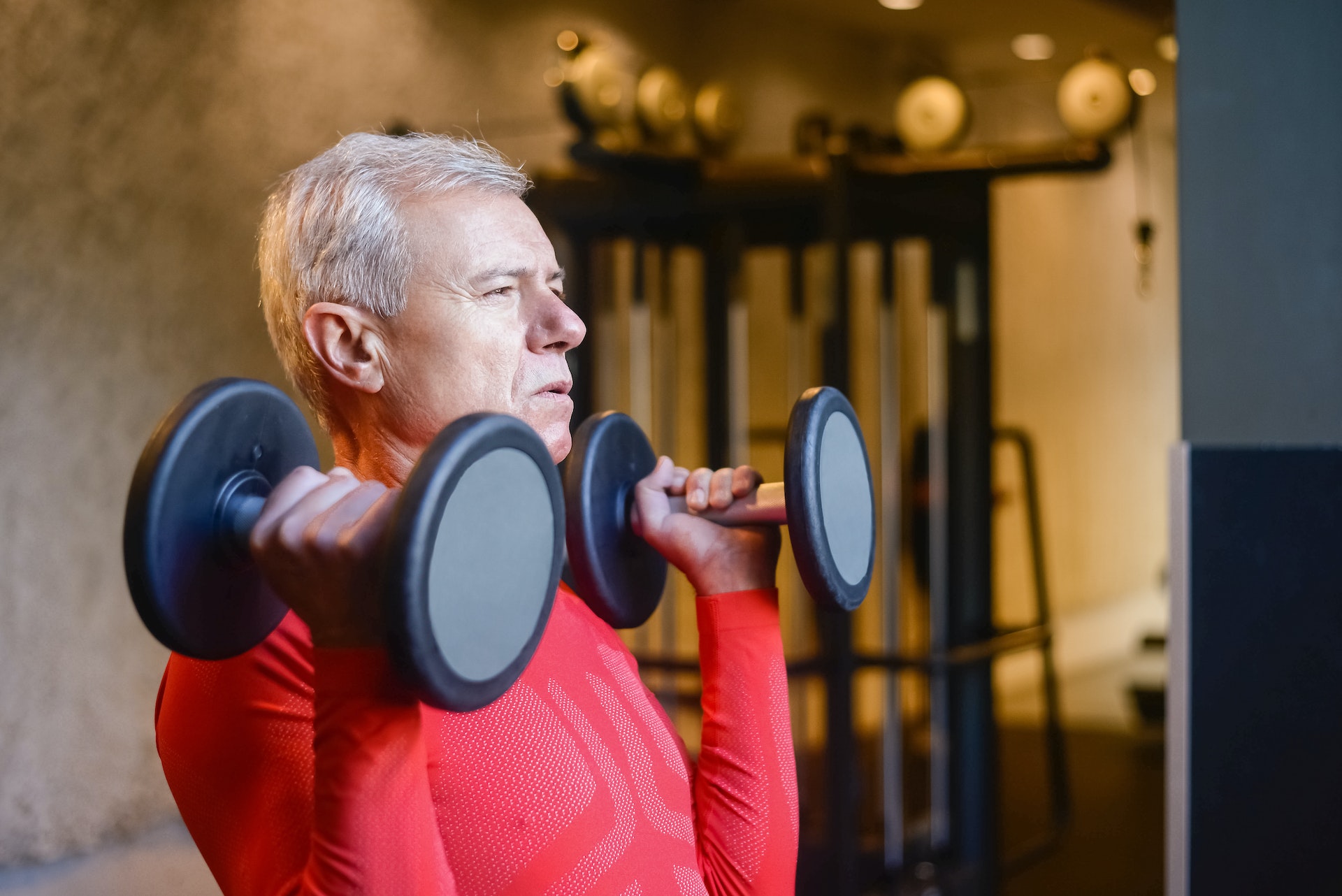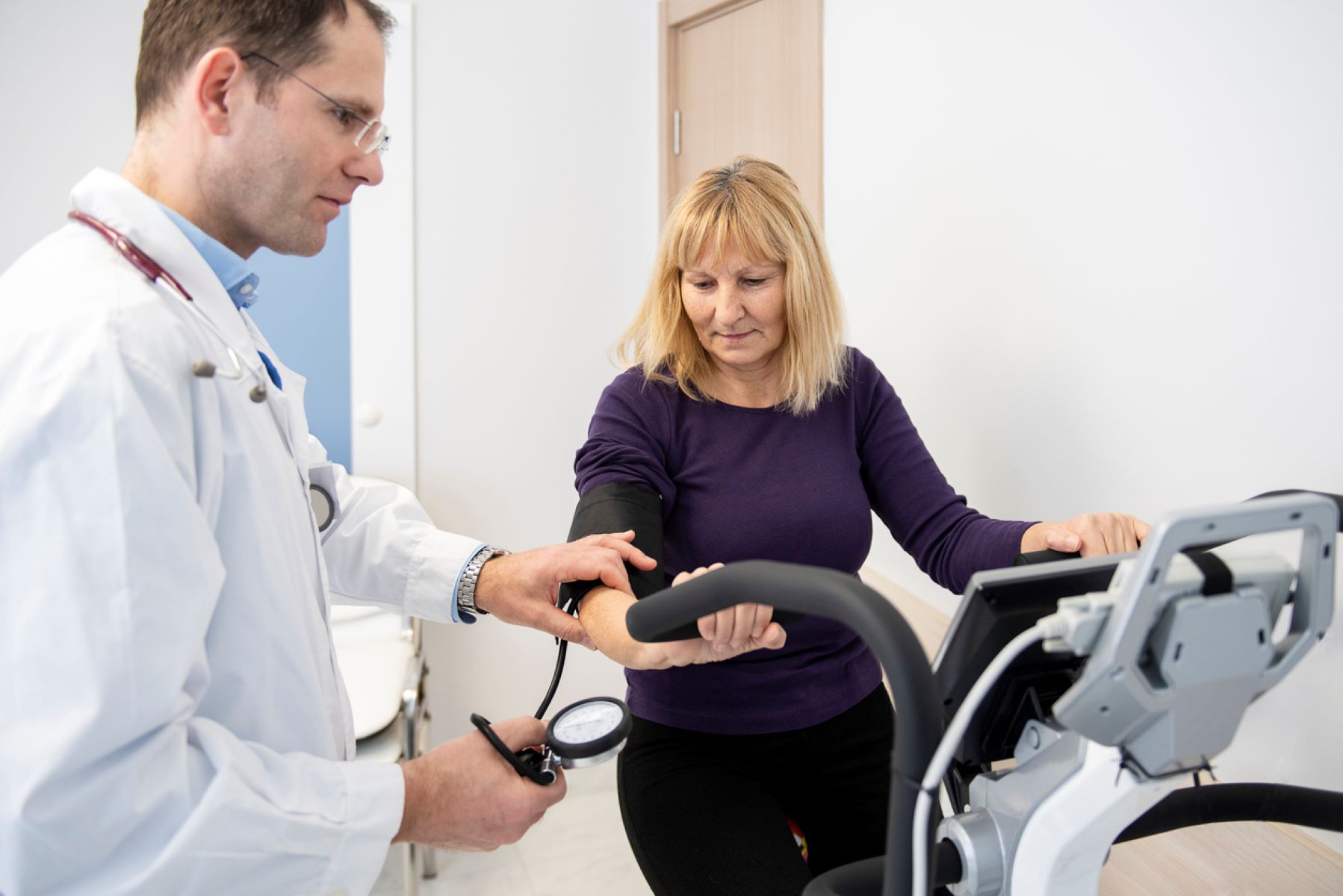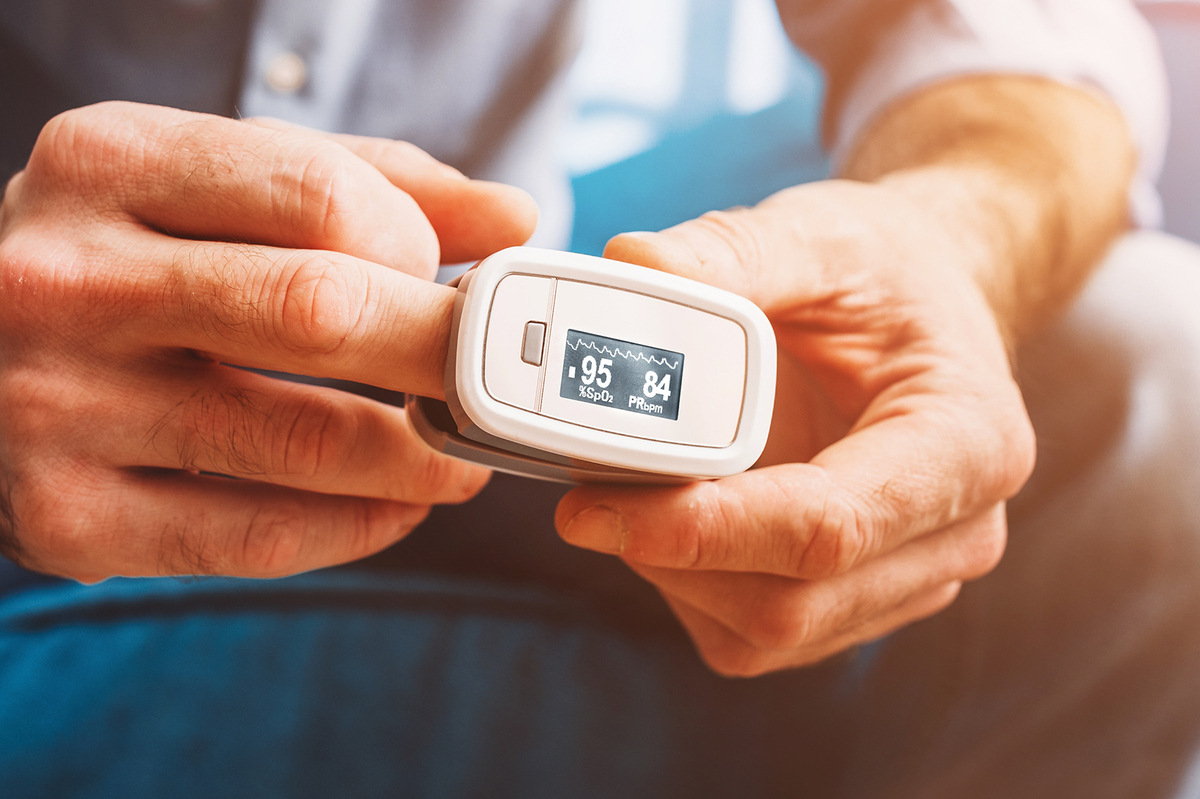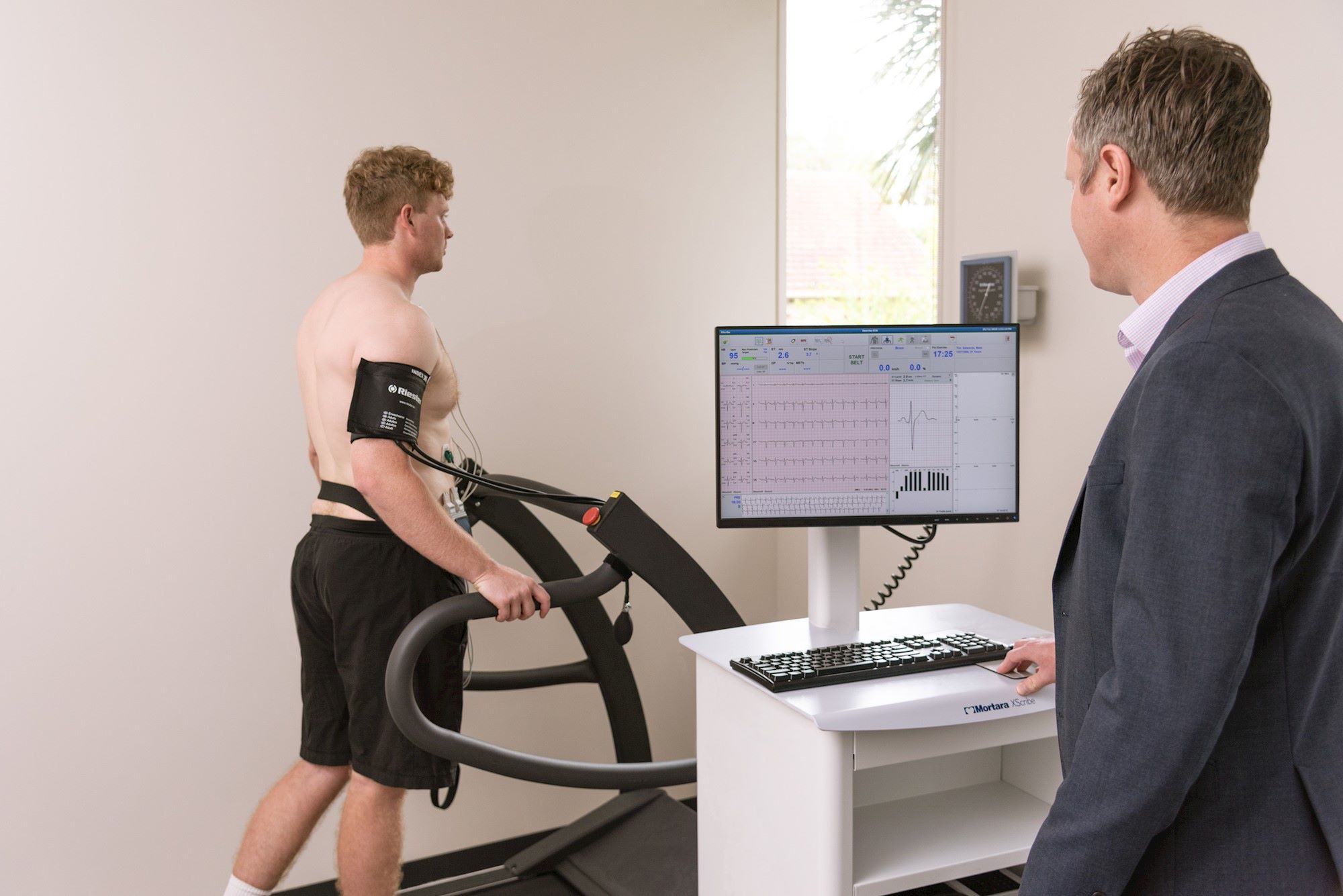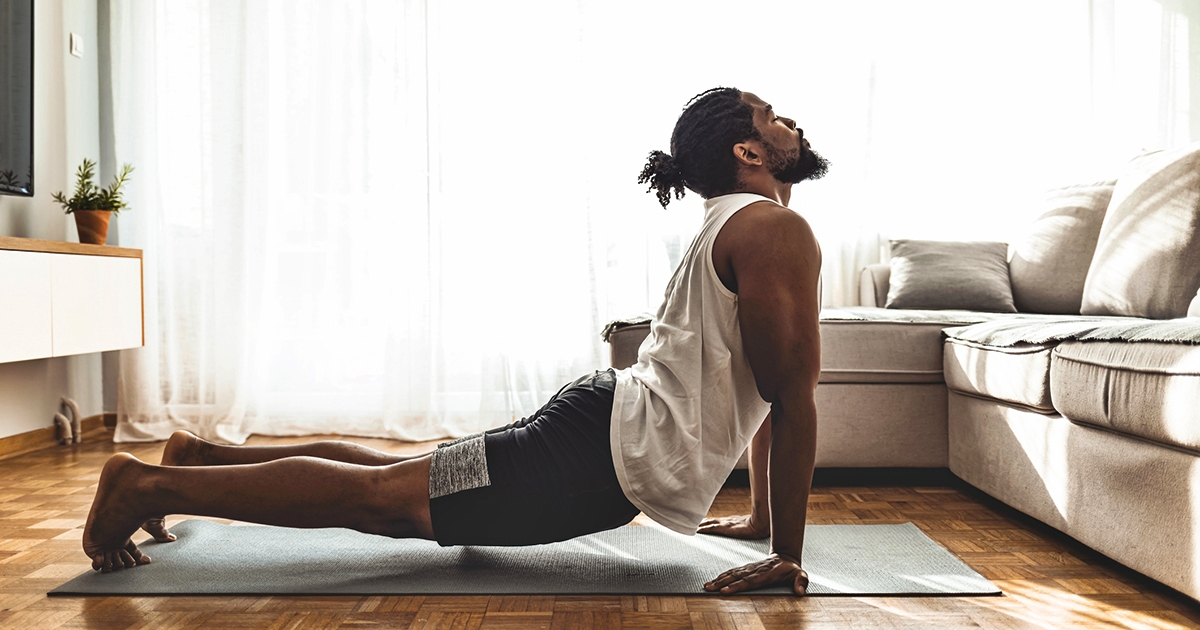

Featured
What Is Physical Health
Modified: January 2, 2024
Discover the importance of physical health and how it impacts overall well-being. Explore our featured articles on fitness, nutrition, and lifestyle habits for a healthier you.
# Introduction
Understanding the Significance of Physical Health
Physical health is an essential component of overall well-being that encompasses the different aspects of our body’s functionality and condition. It refers to the state of being physically fit, having good stamina, strength, and flexibility, and being free from any major health issues or diseases. Physical health plays a crucial role in our daily lives and has a significant impact on our quality of life.
Good physical health is not just about having a lean or muscular body; it goes beyond appearances. It involves maintaining a healthy lifestyle, making wise choices in terms of nutrition, engaging in regular physical activity, and taking care of our body’s needs.
Our physical health is influenced by various factors, including genetics, lifestyle choices, environmental factors, and access to healthcare. Neglecting our physical health can lead to a decline in our overall well-being and can even contribute to the development of chronic diseases.
In today’s fast-paced and sedentary lifestyle, it has become more important than ever to prioritize our physical health. By taking proactive measures and making conscious efforts, we can improve and maintain our physical health, leading to a more active, vibrant, and fulfilling life.
In this article, we will explore the definition of physical health, the factors that influence it, the importance of maintaining physical health, common physical health conditions, and practical tips for improving our physical well-being.
# Definition of Physical Health
Understanding What Physical Health Entails
Physical health refers to the overall condition of our body, encompassing various aspects such as fitness level, strength, endurance, flexibility, and the absence of major health issues. It goes beyond just the absence of illness or disease; rather, it focuses on promoting and maintaining optimal functioning of the body and its systems.
A person with good physical health is typically able to perform daily activities without undue fatigue, has a healthy body weight, and possesses adequate energy levels to engage in physical and mental tasks. Physical health is not solely about the physical appearance but also the internal well-being of our body.
Physical health is influenced by multiple factors, including genetics, lifestyle choices, and environmental factors. Each individual may have a different level of physical health based on their unique circumstances and genetic makeup.
To achieve and maintain physical health, it is essential to adopt healthy habits such as regular exercise, balanced nutrition, adequate rest and sleep, stress management, and avoiding harmful behaviors like smoking and excessive alcohol consumption.
Regular physical activity is a crucial component of physical health as it helps improve cardiovascular health, increase muscle strength, enhance flexibility, and boost overall mental well-being. Engaging in activities such as walking, jogging, swimming, or participating in sports can significantly contribute to physical health.
Nutrition plays a vital role in maintaining physical health as well. Consuming a balanced diet that includes a variety of fruits, vegetables, lean proteins, whole grains, and healthy fats provides the essential nutrients and energy required for the body to function optimally.
In addition to exercise and nutrition, other factors such as adequate sleep, stress management, and regular check-ups with healthcare professionals also contribute to physical health. Sufficient sleep allows the body to repair and rejuvenate, while effective stress management techniques can reduce the risk of chronic health conditions.
Overall, physical health is a holistic concept that involves taking care of all aspects of our body and making conscious choices to prioritize our well-being. By maintaining good physical health, we can enjoy a higher quality of life, improve our longevity, and reduce the risk of developing chronic diseases.
# Factors Influencing Physical Health
Understanding the Influences on Physical Well-being
Physical health is influenced by a combination of factors that interact with each other, affecting our overall well-being and the functioning of our body. These factors can be categorized into various aspects, including genetics, lifestyle choices, environment, and access to healthcare.
1. Genetics: Our genetic makeup plays a significant role in determining our predisposition to certain health conditions and our body’s response to external factors. While we cannot change our genetics, awareness of our family history can help us take preventive measures and make informed decisions to manage any potential health risks.
2. Lifestyle Choices: The choices we make in our day-to-day lives have a profound impact on our physical health. Regular exercise, maintaining a balanced diet, avoiding tobacco and excessive alcohol consumption, and getting sufficient rest and sleep contribute to a healthier body. Conversely, a sedentary lifestyle, unhealthy eating habits, and harmful behaviors can lead to a decline in physical health.
3. Environment: Our physical health can be influenced by our immediate surroundings, including our living conditions, access to clean water, air quality, and exposure to environmental hazards. A clean and safe environment promotes better physical health, while pollution or exposure to toxic substances may have adverse effects on our well-being.
4. Social and Economic Factors: Factors such as socio-economic status, education level, and access to healthcare resources can impact our physical health. Individuals with higher socio-economic status often have more opportunities and resources to prioritize their physical well-being through better nutrition, access to fitness facilities, and healthcare services.
5. Mental and Emotional Health: Our mental and emotional well-being is closely interconnected with our physical health. Chronic stress, anxiety, and depression can negatively impact our physical health, leading to issues such as increased blood pressure, compromised immune system, and disrupted sleep patterns. Conversely, maintaining good mental and emotional health through coping mechanisms, stress reduction techniques, and seeking support when needed can contribute to overall physical well-being.
While these factors can influence our physical health, it is important to remember that each person’s experience is unique, and the extent of their impact may vary. By understanding these influences and making conscious choices, we can take proactive steps to improve and maintain our physical health.
# Importance of Physical Health
Understanding the Vitality of Physical Well-being
Physical health is the foundation upon which our overall well-being is built. It plays a crucial role in our daily lives and contributes to our ability to engage in various activities, maintain independence, and experience a high quality of life. The importance of physical health extends beyond the physical aspects and encompasses our mental, emotional, and social well-being as well.
1. Enhanced Energy and Stamina: Good physical health provides us with the energy and stamina needed to perform daily tasks efficiently and tackle challenges with ease. It allows us to be more productive in both our personal and professional lives and helps prevent feelings of fatigue and exhaustion.
2. Improved Mental Well-being: Engaging in regular physical activity has been shown to have positive effects on mental health. Exercise stimulates the release of endorphins, promoting feelings of happiness, reducing stress and anxiety, and improving overall mood. It can also enhance cognitive function and memory.
3. Reduced Risk of Chronic Diseases: Maintaining physical health through regular exercise, a balanced diet, and other healthy lifestyle choices significantly reduces the risk of developing chronic diseases such as cardiovascular diseases, diabetes, obesity, and certain types of cancer. It also promotes healthy aging and increases longevity.
4. Boosted Immune System: Physical health strengthens our immune system, making it more resilient and better equipped to fight off infections, viruses, and diseases. Regular exercise and a healthy diet contribute to the production of antibodies and improve immune cell function, reducing the risk of illnesses and enhancing overall immunity.
5. Improved Sleep Quality: Good physical health positively influences sleep patterns and promotes better sleep quality. Regular exercise helps regulate sleep-wake cycles, reduces insomnia, and promotes a deeper and more restorative sleep. Adequate rest and sleep are vital for physical and mental rejuvenation.
6. Enhanced Quality of Life: Physical health enables us to enjoy a higher quality of life by enabling us to participate in activities we love, maintain social connections, and pursue our passions. It empowers us to engage in recreational activities, sports, hobbies, and adventures, leading to a more fulfilling and active lifestyle.
7. Better Relationship with Self and Others: When we prioritize our physical health, we cultivate a positive self-image, boost self-confidence, and improve self-esteem. Taking care of our physical well-being also enhances our relationships with others as we can be more present, have more energy to spend quality time with loved ones, and be a positive influence on those around us.
Given the multitude of benefits, it is clear that physical health is paramount to leading a vibrant, fulfilling, and enjoyable life. By making conscious choices to prioritize and invest in our physical well-being, we can unlock our full potential and experience optimal overall health.
# Benefits of Maintaining Physical Health
Reaping the Rewards of Prioritizing Physical Well-being
Maintaining good physical health is not just about the absence of illness, but it also brings forth a multitude of benefits that positively impact our overall well-being. When we make the effort to take care of our physical health, we can experience a range of advantages that enhance our daily lives and contribute to long-term happiness.
1. Increased Energy and Vitality: Engaging in regular physical activity and adopting a healthy lifestyle boosts our energy levels, leaving us feeling more vibrant and alive. Physical fitness provides us with the stamina needed to tackle daily tasks without fatigue, allowing us to accomplish more and enjoy a higher level of productivity in all areas of life.
2. Improved Mental Well-being: Physical activity has a profound impact on our mental health. Regular exercise stimulates the release of endorphins, which are natural mood boosters. This can help reduce feelings of stress, anxiety, and depression, and promote overall mental well-being. Exercise also enhances cognitive function, improves focus, and increases mental clarity.
3. Enhanced Physical Appearance: One of the visible benefits of maintaining physical health is an improved physical appearance. Regular exercise helps in toning muscles, reducing body fat, and improving posture and flexibility. This can lead to a more confident and positive self-image, boosting self-esteem and body positivity.
4. Reduced Risk of Chronic Diseases: Prioritizing physical health through exercise and healthy lifestyle choices significantly reduces the risk of chronic diseases such as heart disease, type 2 diabetes, certain cancers, and obesity. Regular physical activity strengthens the cardiovascular system, improves blood circulation, and helps maintain healthy blood pressure and cholesterol levels.
5. Weight Management: Regular physical activity, coupled with a balanced diet, is essential for maintaining a healthy weight. Engaging in exercises that burn calories helps in weight management and prevents the accumulation of excess body fat. A healthy weight reduces the risk of various health conditions and improves overall well-being.
6. Better Sleep Quality: Regular physical activity has been linked to improved sleep quality. Exercise helps regulate sleep patterns, promotes a deeper and more restful sleep, and reduces the incidence of sleep disorders such as insomnia. Quality sleep is crucial for physical recovery, mental rejuvenation, and overall optimal functioning.
7. Strengthens Immune System: Regular exercise strengthens the immune system and increases its capability to fight off infections and diseases. Physical activity promotes the circulation of immune cells, enhances antibody production, and improves overall immune response. This leads to a reduced risk of illnesses and a better ability to recover from infections.
8. Enhanced Longevity: Prioritizing physical health can contribute to a longer and healthier life. Regular exercise and healthy lifestyle choices have been linked to a decreased risk of premature mortality. By taking care of our bodies, we can potentially add years to our lives, allowing us to enjoy more precious moments with loved ones.
9. Improved Quality of Life: Good physical health significantly enhances our overall quality of life. It enables us to engage in activities we enjoy, pursue our passions, and maintain independence. With enhanced physical health, we can participate in recreational activities, travel, and spend quality time with loved ones, resulting in a more fulfilling and enjoyable life.
10. Positive Impact on Mental Health: A healthy body positively influences mental health. When we take care of our physical well-being, it can boost self-esteem, self-confidence, and body image, leading to improved mental and emotional well-being. This can have a positive ripple effect on all aspects of our lives, including work, relationships, and personal growth.
By prioritizing physical health and making conscious efforts to maintain it, we can experience these wonderful benefits that enhance our overall well-being and enable us to lead a more fulfilling and rewarding life.
# Common Physical Health Conditions
Understanding the Challenges to Physical Well-being
While maintaining good physical health is important, it is also essential to be aware of common physical health conditions that can affect us. These conditions can vary in severity and impact, and it is necessary to recognize their signs and symptoms in order to seek appropriate medical attention and treatment. Here are some common physical health conditions:
1. Cardiovascular Diseases: Cardiovascular diseases, including heart disease, stroke, and high blood pressure, are among the leading causes of death worldwide. These conditions can be caused by factors such as poor diet, lack of exercise, smoking, and high levels of stress. Symptoms may include chest pain, shortness of breath, dizziness, and fatigue. Regular exercise, a heart-healthy diet, and managing stress can help prevent and manage these conditions.
2. Obesity: Obesity is a prevalent physical health condition characterized by excess body weight and body fat accumulation. It can lead to various health issues, including heart disease, type 2 diabetes, joint problems, and sleep apnea. Poor diet, sedentary lifestyle, and genetic factors can contribute to obesity. Treatment options include lifestyle modifications, dietary changes, regular exercise, and, in some cases, medical intervention.
3. Diabetes: Diabetes is a chronic condition that affects the body’s ability to regulate blood sugar levels. Type 2 diabetes, which is the most common form, is often associated with lifestyle factors such as poor diet and lack of physical activity. Symptoms include frequent urination, increased thirst, excessive hunger, and fatigue. Management involves lifestyle changes, medication, and monitoring blood sugar levels.
4. Osteoporosis: Osteoporosis is a condition that weakens the bones, making them fragile and more prone to fractures. It is often associated with aging and hormonal changes, particularly in women after menopause. Lack of calcium, vitamin D deficiency, sedentary lifestyle, and smoking can increase the risk. Prevention and management strategies include a calcium-rich diet, regular weight-bearing exercise, and medication when necessary.
5. Respiratory Conditions: Respiratory conditions such as asthma, chronic obstructive pulmonary disease (COPD), and allergies can have a significant impact on physical health. These conditions affect the lungs and respiratory system, leading to breathing difficulties, coughing, wheezing, and reduced lung function. Management may involve medications, lifestyle changes, and avoiding triggers such as allergens and smoking.
6. Musculoskeletal Disorders: Musculoskeletal disorders, including arthritis, back pain, and joint problems, can affect physical health, mobility, and quality of life. These conditions can be caused by factors such as aging, repetitive strain injuries, poor posture, and an inactive lifestyle. Treatment options may include physical therapy, pain management techniques, medication, and lifestyle modifications.
7. Mental Health Disorders: While mental health conditions are primarily associated with psychological well-being, they can also have significant physical health implications. Conditions such as depression, anxiety, and stress can contribute to physical symptoms such as fatigue, changes in appetite, and sleep disturbances. It is important to address mental health concerns through therapy, medication, and stress management techniques to support overall physical well-being.
It is crucial to consult healthcare professionals for proper diagnosis, treatment, and management of these physical health conditions. By being informed and proactive, we can address these challenges and take appropriate measures to maintain and improve our physical well-being.
# Tips for Improving Physical Health
Practical Steps Towards a Healthier Lifestyle
Improving physical health requires a combination of adopting healthy habits, making mindful choices, and being consistent with our efforts. Here are some practical tips to boost physical well-being:
1. Engage in Regular Physical Activity: Aim to incorporate at least 150 minutes of moderate-intensity aerobic activity or 75 minutes of vigorous-intensity aerobic activity each week. This can include activities such as brisk walking, jogging, cycling, swimming, or dancing. Additionally, include strength training exercises at least two days a week to build muscle and increase overall fitness.
2. Follow a Balanced Diet: Consume a variety of fruits, vegetables, whole grains, lean proteins, and healthy fats. Limit processed foods, sugary beverages, and foods high in saturated fats and sodium. Maintain portion control and listen to your body’s hunger and fullness cues.
3. Stay Hydrated: Drink an adequate amount of water throughout the day to keep your body hydrated and support proper bodily functions. The daily water intake may vary depending on factors such as age, activity level, and climate.
4. Get Enough Rest and Sleep: Prioritize getting quality sleep by practicing good sleep hygiene. Aim for 7-9 hours of uninterrupted sleep each night. Establish a consistent sleep schedule, create a conducive sleep environment, limit caffeine and electronic device use before bedtime, and engage in relaxation techniques to promote better sleep.
5. Manage Stress: Adopt stress management techniques such as deep breathing exercises, meditation, yoga, or engaging in hobbies and activities you enjoy. Find healthy outlets to express emotions, build a strong support network, and seek professional help when needed.
6. Avoid Harmful Habits: Minimize or avoid smoking, excessive alcohol consumption, and recreational drug use. These habits have detrimental effects on physical health and increase the risk of various health conditions.
7. Prioritize Mental Wellness: Take care of your mental well-being by practicing self-care, engaging in activities that bring you joy, and seeking support from loved ones. Addressing mental health concerns can have a positive impact on overall physical health.
8. Practice Proper Hygiene: Maintain good personal hygiene habits such as regular handwashing, dental care, and skincare. These habits reduce the risk of infections and promote overall physical well-being.
9. Regular Health Check-ups: Schedule regular visits to your healthcare provider for check-ups, screenings, and preventive care. These appointments help identify any potential health issues early on and allow for timely intervention and management.
10. Stay Motivated and Consistent: Establish realistic goals, track your progress, and celebrate small achievements along the way. Find enjoyment in the process of improving your physical health, and remember that consistency is key in maintaining long-term results.
By incorporating these tips into your lifestyle and making a conscious effort to prioritize your physical health, you can experience improvements in your overall well-being, vitality, and longevity.
# Conclusion
Embracing the Journey to Optimal Physical Health
Physical health is a fundamental aspect of our overall well-being, impacting our daily lives, longevity, and quality of life. By understanding the definition of physical health, the factors influencing it, and the benefits of maintaining it, we can take proactive steps to prioritize our physical well-being.
Through regular physical activity, balanced nutrition, stress management, and healthy lifestyle choices, we can improve our energy levels, enhance mental well-being, reduce the risk of chronic diseases, and enjoy a higher quality of life.
It is crucial to be aware of common physical health conditions and their symptoms, seeking proper medical attention and treatment when needed. By addressing these challenges, we can navigate our health journey with knowledge and resilience.
Remember, improving physical health is a journey that requires consistency, patience, and self-care. Progress may not occur overnight, but with dedication and perseverance, positive changes can be achieved.
Commit to prioritizing your physical health by incorporating regular exercise, healthy eating habits, sufficient rest, and stress management techniques into your daily routine. Seek support from healthcare professionals, loved ones, or support groups whenever necessary.
By embracing a holistic approach to physical health and making conscious efforts towards self-improvement, you can unlock the potential for a vibrant, active, and fulfilling life.
Take the first step today towards a healthier future and embark on a journey of well-being that will not only transform your physical health but also empower you to live your best life.

